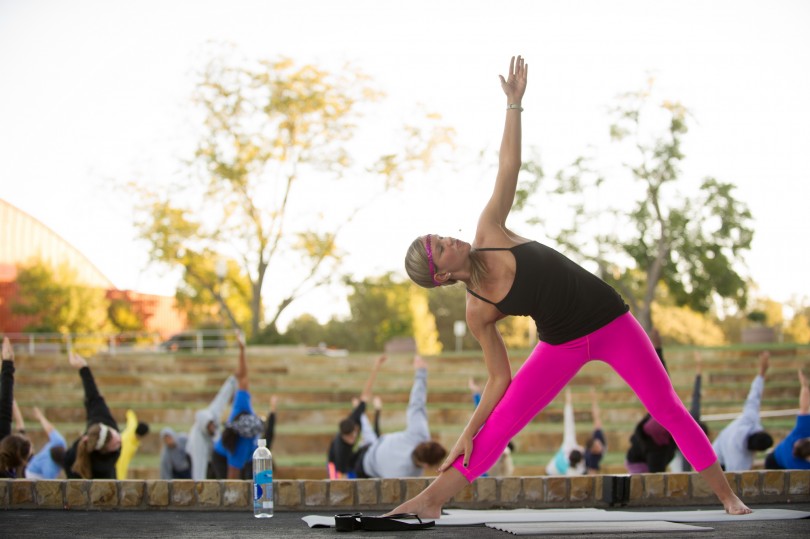Red wine, dark chocolate and blueberries have long been heralded as the main bearers of unexpected antioxidants and now scientists are adding yoga to the list.
A recent study in the Journal of Alternative and Complementary Medicine, found consistent yoga practice in healthy university students dramatically “improved antioxidant levels of the body”.
The study also showed a “remarkable reduction in oxidative-stress”, a reduction in the release of stress hormones, and a “partial improvement in immune function”.
Marc Cohen, a professor of health sciences at RMIT University, said the study was very innovative but the findings were not surprising.
“The results confirm a lot of previous research into what yoga is believed to do,” he said.
“What is refreshing is a lot of people often focus on the mental benefits of yoga, but this paper also focuses on the physiological benefits, which is something that isn’t always done.
“But again, it doesn’t surprise me that yoga improves these biomarkers because they are just biomarkers of what yoga is known to improve.”
Professor Cohen, who is also a medical practitioner, said while the results were promising, the study should be taken further to provide a conclusive result.
“The next step is probably to document these changes in a broader range of demographics, and to see who this study is relevant for, i.e. those with high-stress levels, those with poor immune function, rather than those who are known to be healthy,” he said.
Emma Beckett, a nutrition researcher at the University of Newcastle, said while the study was novel in surveying healthy, young people, the research was too narrow to draw conclusions.
“It’s a really interesting question, and the premise is perhaps logical, but I would not get excited until a bigger, better study is conducted,” she said.
“It does make sense that regular, low impact exercise like yoga could reduce oxidative stress. But there needs to be bigger and better designed studies than this before we could really say.
“People are so different, we need big cohorts of people in these kinds of studies to find real differences. Remember lots of things contribute to oxidative stress, so don’t think that yoga can cancel out a bad diet or lifestyle habits.”
Oxidative stress is caused by toxins, known as free radicals, which result from environmental elements like air pollution and exposure to UV rays.
Antioxidants neutralise these toxins within the body, slowing down many of the bodies ageing processes, while also preventing heart disease, cancer and glaucoma.
Image credit: A&M Commerce via Flickr





